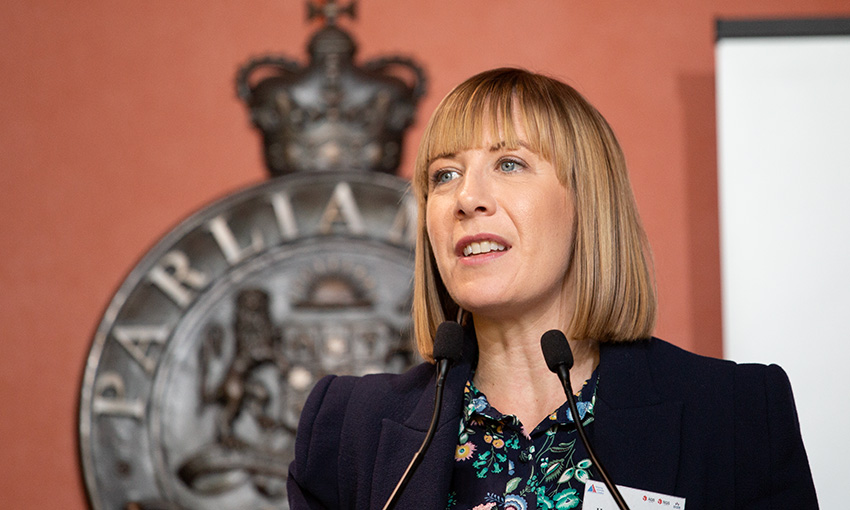NSW transport minister Jo Haylen shared her vision for a less fragmented freight system during her presentation at Shipping Australia’s NSW Parliamentary Luncheon.
Ms Haylen delivered a keynote speech at the event on Thursday (10 August) to a room full of shipping representatives and stakeholders.
She broke down recent and emerging developments in the maritime industry and the role it plays in the nation’s freight and logistics network.
“I think shipping is sexy,” Ms Haylen told the room. “I think shipping and freight are exciting.
“Freight is an essential component of our state’s economy, worth nearly $66 billion. And our state’s economic growth and prosperity depends on a safe, efficient and reliable movement of goods.
“And I want to see a less fragmented, more co-ordinated freight system.”
Ms Haylen outlined the strategic plans and reviews that set out to transform freight and remove infrastructure bottlenecks.
But, she said transformation hadn’t happened yet (particularly on the rail front) and government and industry would need to work together to find solutions to the shortcomings.
Ms Haylen also highlighted some big shifts in industry that would see continued growth in commodities such as grain and a decline in coal exports.
“We’ve seen strategic decisions related to the development of our ports with legislation … removing the constraints on the Newcastle port as a container terminal. We’ve also seen advances in technology. And we must embrace that rapidly as we move towards net zero emissions.”
Ms Haylen said she has been looking at the regulation that occurs at ports with a vision to ensure the whole system is efficient and well-managed.
“The state’s three main trading ports have grown and contribute more than $15 billion to our state’s economy each year,” she said.
“It makes sense to examine the regulatory framework that underpins the operation of the ports to ensure that it remains fit for purpose and can accommodate the expanding future ports and maritime environment.”
And Ms Haylen also touched on two areas that continue to dominate industry visions and discussions: sustainability and technology.
She acknowledged the commitment many shipping lines had made to transitioning to low and zero-emission fuel technology.
“[Sustainability] is front of mind because we know transport contributes 20% of all our greenhouse gases, and we’re not going to meet our targets unless shipping is a part of that innovation and change,” she said.
She also highlighted the way technology had disrupted established industries and changed the way they operate.
“The freight sector … needs to take advantage of those unique opportunities that data technology and innovation offer for a more efficient, safe and productive supply chain,” she said.
“Through data, there is potential to gain greater visibility of where fragmentation can be removed from the supply chain, it can improve insights where government or industry intervention is required to unlock capacity in our network.
“It can drive transparency, and accountability, lifting performance and giving industry participants the competence to invest.”
Ms Haylen acknowledged some of the needs and concerns industry had raised around a lack of information and data sharing, which had impeded use of existing capacity and optimisation of efficiency at ports and on rail and road networks.
“Please be assured that work is underway in this space across our government and the federal government. And I hope that we see significant progress in this area very soon.”

